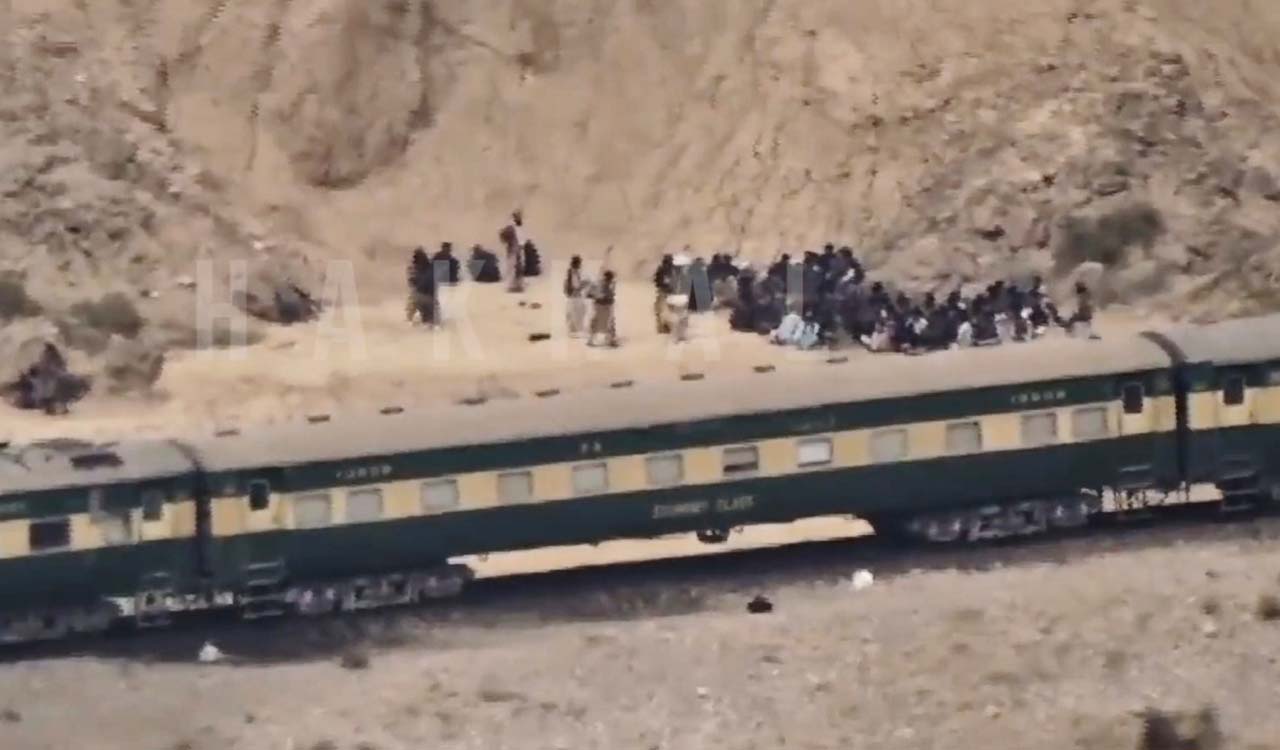Editorial: Pakistan tasting its own medicine
The brazen hijacking of a train in the restive Balochistan province highlights the growing unrest in the country

Like a Frankenstein monster, terrorism, nurtured by the Pakistani deep state for decades, is coming back to bite it with devastating effect. The brazen hijacking of a train in the restive Balochistan province was the latest in a series of terror attacks across the country and highlighted the growing unrest. The irony is that Pakistan, which used terrorism as an instrument of state policy for decades, is at the receiving end now. The audacious attack was carried out by the Baloch Liberation Army (BLA) targeting the Jaffer Express bound for Peshawar with over 400 passengers on board. The 24-hour tense hostage drama ended after security forces launched a risky rescue operation that left all 33 militants dead along with 24 passengers and four security personnel. Despite being Pakistan’s largest province, Balochistan remains its most marginalised and neglected region in the throes of a separatist movement. Home to roughly 15 million people, this arid, resource-rich region has long suffered economic exploitation and state repression. Baloch insurgent groups, particularly the BLA, have waged a decades-long battle for autonomy, accusing Islamabad of plundering the province’s vast mineral wealth while leaving its people in abject poverty. The situation has reached a boiling point, with BLA militants targeting security forces, infrastructure and Chinese investments linked to the China-Pakistan Economic Corridor (CPEC). The escalating insurgency has exposed the state’s weakening grip over its restive provinces of Khyber Pakhtunkhwa and Balochistan. On the other hand, the Taliban, the creation of Pakistani military bosses, is now biting the hand that fed it.
Instead of looking inward and addressing the genuine concerns of Baloch people, it is unfortunate that Islamabad chose to raise the bogey of a ‘foreign hand’, alleging India’s possible involvement in the train hijacking. The whole world is aware of where the epicentre of global terrorism lies. The Global Terrorism Index (GTI) 2025 ranked Pakistan as the world’s second most terrorism-affected country, after Burkina Faso. According to the report, terrorism-related deaths touched 1,081 in 2024, a 45% surge compared to the previous year. This worsening security crisis stems from a complex concoction of domestic, regional and global factors. Domestically, outlawed groups such as the Tehreek-e-Taliban Pakistan (TTP) and separatist outfits such as the BLA have intensified their campaigns amid the nation’s deepening economic instability and political turmoil following the ouster of former prime minister Imran Khan in 2022. Regionally, the fall of Kabul in 2021 and the subsequent return of the Taliban to Afghanistan have emboldened terror outfits, including the TTP. At the same time, Pakistan’s unquestioned surrender to China’s hegemony has strained its relations with the United States, leading to a decline in American support. With terror networks expanding and state authority eroding, Pakistan’s security challenges are reaching a breaking point. The question is whether the government can reclaim control or will the insurgency further spiral out of hand.
Also Read
- Pakistan train attack: 16 terrorists killed, 104 passengers rescued
- India slams Pakistan over Kashmir remarks at UN, calls it ‘failed state surviving on international aid’
- Editorial: Turmoil in Pakistan
- Editorial: Dangerous liaisons
- Editorial: Wages of sin
- Opinion: Imran Khan hitting a dead end
- Opinion: Pakistan pays high price for CPEC
- Opinion: India’s best bet in Pakistan
- Opinion: Pakistan needs trade, not aid
Related News
-
Opinion: MLA is not a Public Servant — justice lost in interpretation
2 mins ago -
Is it a crime to win majority of wards, Suman asks Vivek before arrest
19 mins ago -
Deer killed in road accident in Kothagudem
31 mins ago -
Speaker concludes hearing on disqualification petition against Danam Nagender
55 mins ago -
Consumers’ body wants BIS Standards Clubs set up in schools, colleges in Telangana
56 mins ago -
Telangana’s finances struggle over weak revenues and mounting debts
60 mins ago -
IIT Hyderabad to host MSME Tech Connect 2026
1 hour ago -
Khammam, Warangal police excel in Telangana Police Sports and Games Meet
1 hour ago




